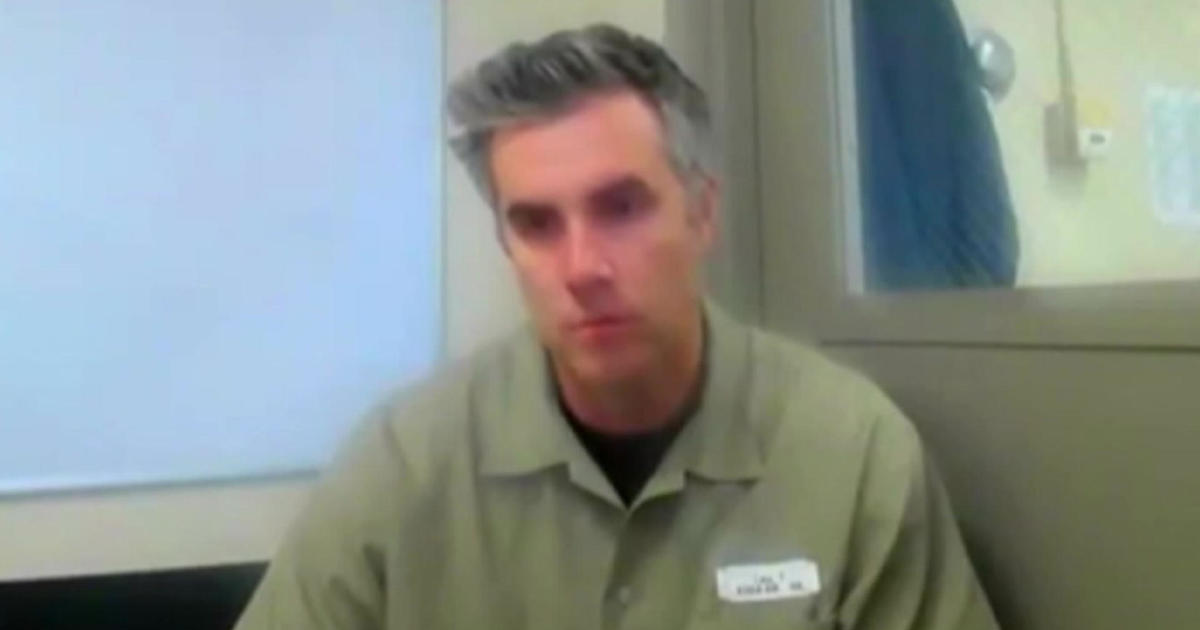3 Convicted In Indian Gang Trial
MINNEAPOLIS (AP) — Three alleged members of a violent American Indian gang known for terrorizing people in the Upper Midwest were convicted Tuesday in what authorities called one of the largest gang cases to come out of Indian Country.
An alleged leader of the Native Mob, 34-year-old Wakinyon Wakan McArthur, was found guilty on several charges including the most serious one he faced, racketeering conspiracy. But he was acquitted on an attempted murder charge that stemmed from the shooting of another man that prosecutors said McArthur ordered.
Two alleged gang "soldiers" — Anthony Francis Cree, 26, and William Earl Morris, 25 — were both convicted of attempted murder in aid of racketeering, in addition to other charges. Morris was the only defendant cleared of racketeering, a charge often used by prosecutors to target mobsters and organized crime.
A sentencing date has not yet been set, but all three men face a maximum of between 20 years and life in prison, according to the U.S. attorney's office. The men were the only defendants who didn't accept plea deals after 25 people were originally charged in a 57-count indictment.
Prosecutors said the case was important not only because of its size, but because the racketeering charge is a tool rarely used against gangs — indicating the case was an attempt to take down the entire enterprise.
"The verdicts reflect the seriousness of the crimes that were being committed by the Native Mob, which includes not only drug trafficking, but discharging of firearms at innocent people, and trafficking firearms, and basically wreaking havoc through communities throughout the state of Minnesota," Assistant U.S. Attorney Andrew Winter said after the verdicts were read.
Winter said authorities have "conservative confidence" that they put a serious dent in the Native Mob but that investigations will continue.
Defense attorneys had said the government's case was overblown, and that while gang members may have committed individual crimes, there was no evidence to support racketeering charges alleging the trio was part of a large, organized criminal group.
McArthur's attorney, Frederick Goetz, said his client's acquittal for attempted murder indicates the jury recognized the three defendants' culpabilities varied.
"It was a mixed result for a mixed verdict," Goetz said, adding that he would likely appeal.
Cree's attorney, John Brink, said he would raise the issue of inconsistent verdicts on appeal.
Morris' attorney, Tom Schiah, cited the same issue but added that he was glad Morris was acquitted of the racketeering charge. Still, Schiah acknowledged his client was "looking at a boatload of time."
The 2011 National Gang Threat Assessment called the Native Mob one of the largest and most violent American Indian gangs in the U.S., most active in Minnesota and Wisconsin but also in Michigan, North Dakota and South Dakota. It is made up of mostly American Indian men and boys, and started in Minneapolis in the 1990s as members fought for turf to deal drugs. The Native Mob is also active in prison.
The Native Mob had about 200 members, with a structure that included monthly meetings where members were encouraged to assault or kill enemies, or anyone who showed disrespect, according to the indictment. Authorities said McArthur was a "chief" of the Native Mob, and directed other members to carry out beatings, shootings and other violent acts to intimidate rivals.
Prosecutors said that in 2010, Morris tried to kill a man by shooting him multiple times while he was with his 5-year-old daughter. The indictment said the shooting was done at McArthur's bidding.
Although McArthur was cleared of the attempted murder charge stemming from that allegation, jurors also convicted him of distributing and conspiracy to distribute drugs and using a firearm in a violent crime. He was acquitted of assault with a dangerous weapon in the aid of racketeering and using a firearm in a violent crime.
Along with the attempted murder charge, Cree and Morris were each convicted of assault with a dangerous weapon in aid of racketeering and using a firearm in a violent crime. Cree also was found guilty of conspiracy to distribute drugs, while Morris was convicted of being a felon in possession of a firearm.
In his closing argument last week, Winter told jurors there was no question the Native Mob was a criminal enterprise, complete with rules, defined roles and bylaws. He said the gang's racketeering activity included drug trafficking, attempted murder, murder and witness retaliation.
"When you have a criminal organization, witnesses become a problem," Winter said. "To make money, the reputation of the Native Mob has to be intact, and when the reputation is threatened, it has to be protected."
Goetz said during closing arguments that the case was one of monumental overreach.
Christopher Grant, a national Native American gang specialist in South Dakota, has said there are hundreds of American Indian gangs nationwide. Most, he said, are loosely organized and might have as few as five members, but that he considered the Native Mob to be the most organized, violent and predatory in Indian Country.
The trial, which began in January, included nearly 1,000 exhibits and 180 witnesses.
(© Copyright 2013 The Associated Press. All Rights Reserved. This material may not be published, broadcast, rewritten or redistributed.)



